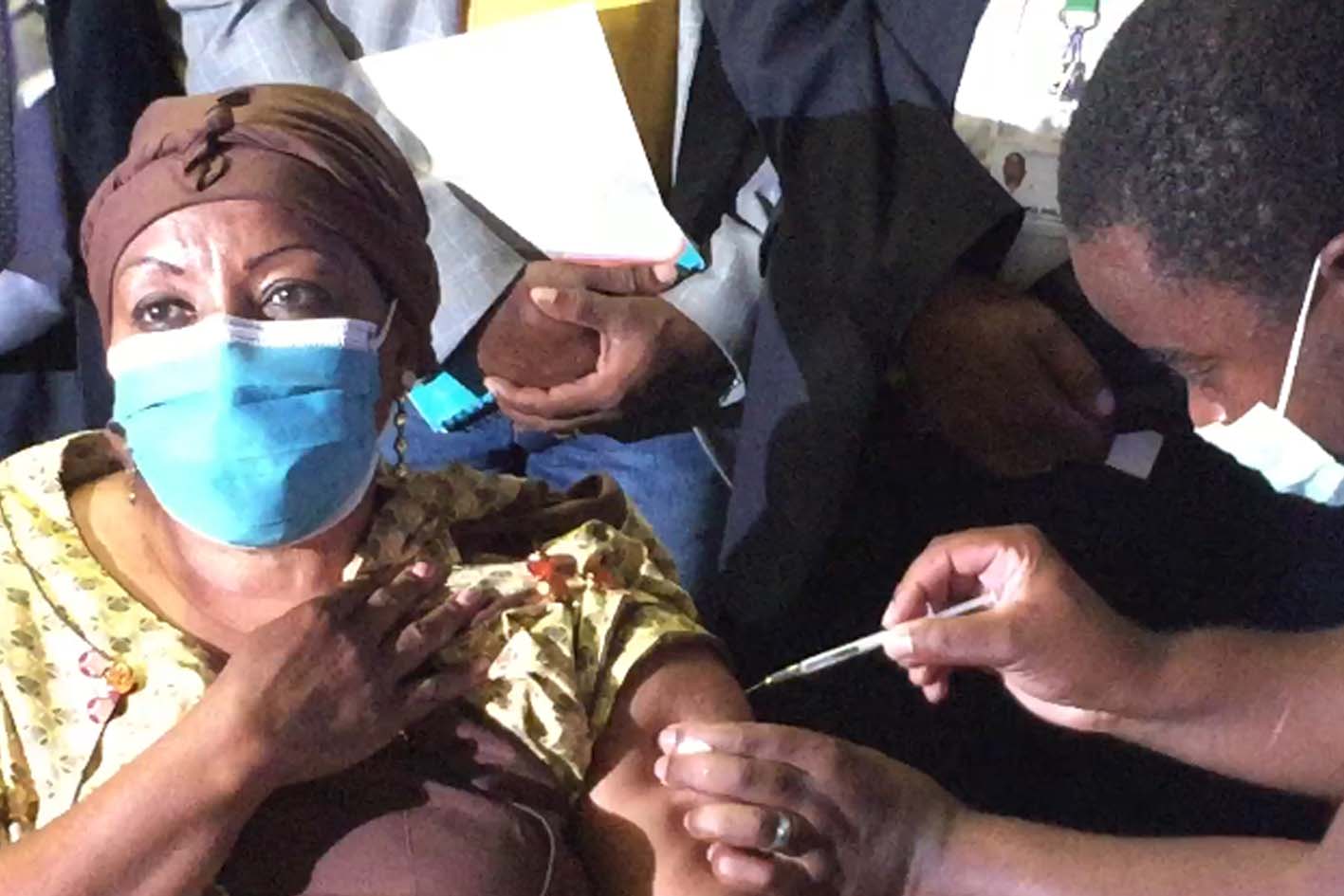Kandjemuni Kamuiiri, Maria Hamutenya and Andrew Kathindi
MINISTER of Health and Social Services, Kalumbi Shangula says no one, including members of the uniformed forces, will be forced to take the COVID-19 vaccine.
This comes as the country on Friday began its roll-out of the Chinese manufactured Sinopharm vaccine, which arrived in Namibia earlier this week.
“People who are live in closed settings like people in prisons, police cells, and school hostels are the ones we want to target in phase-one, but eventually everyone will have a chance to be vaccinated. The vaccine is voluntary. If you don’t want it, no one will force you to have it,’’ he said.
The government is targeting to inject 50 000 people with the Sinopharm vaccine.
Namibia Transport and Taxi Union (NTTU) president Werner Januarie said the union had not been consulted by the government on the vaccination procedures and would therefore not encourage its members to take the injection despite their interaction with a lot of people in their work.
“I will not encourage or discourage anyone to take the vaccine because no one is compelled to do so. What if the vaccine has disastrous side effects? Members must make their own decisions,” Januarie added.
He said he will not take the vaccine and he will also not discourage or encourage anyone in the transport sector on taking the vaccine.
Acting Secretary General of the Namibia Nurses Union (NANU) Junias Shilunga conceded that taking the vaccine was a personal choice, despite the fact that members of his union are vulnerable to exposure on a regular basis.
“We cannot dictate or advise union members to take the vaccine or not, because that is an individual choice.”
Asked whether health care workers who do not take the vaccine could be a health risk to patients, Shilunga said:
“Before you are a nurse you are an individual. You might work in a hospital but you still have your constitutional rights.”
He was however critical of the information government has given to nurses on the vaccine, stating that it is not enough.
“Up to now, some of us did not get information on the side effects of this vaccine. I understand those targeted for the roll-out got the information but it needs to be distributed to everyone. They need to understand the side effects, so that people make informed decisions.”
The spokesperson for the Namibia Correctional Services, Commissioner Sam Shaalulange told the Windhoek Observer that no inmates will be vaccinated but was still to confirm the number of officers willing to be vaccinated.
“Those who have chosen to get the injection are encouraged to approach the health directorate in the correctional services for more information, but that will be their personal choice to make.”
More than 100 prisoners at Windhoek’s Correctional Facility tested positive for COVID-19 last year, with NCS Commissioner General Raphael Hamunyela suspecting a prison officer was responsible for transmitting the virus to the inmates.
The secretary-general of the Teachers Union of Namibia Mahongora Kavihuha said there were mixed feelings among union members.
“Some want to take the vaccine; others are hesitant and yet there are some who don’t want to take the vaccine at all. Some members are playing the delaying game, so there is no clarity on what is the way forward,” said Kavihuha.
She added that there was no use in vaccinating one section and leaving the other as teachers and learners should be vaccinated together.
Since opening early this year, schools across the country have experienced a spike in infections among teachers and pupils.
More than 300 pupils and teachers contracted COVID-19 in the third week of February.
“Taking that vaccine does not relieve you of wearing masks and using sanitizers or observing the social distance protocols. This vaccination issue is still on trial, so we cannot say whether the person that has not taken the vaccine is at high risk or not,” Kavihuha said.
The country has so far recorded 41 684 commutative cases of COVID-19 and 483 deaths.




